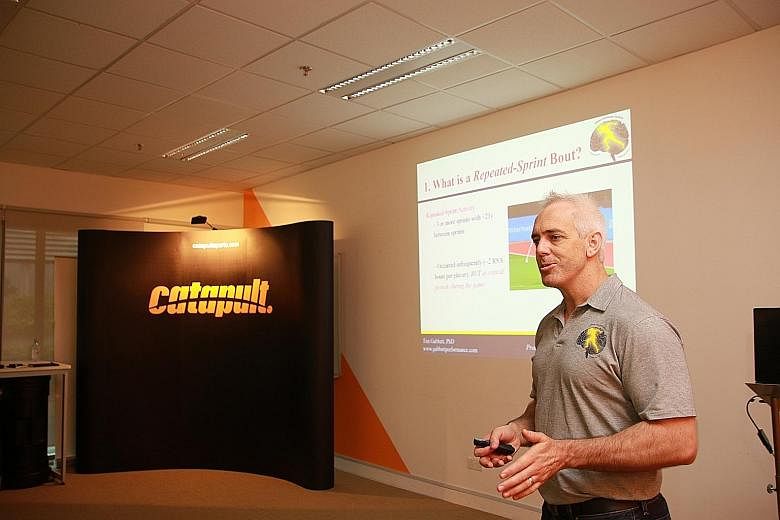When sports science consultant Tim Gabbett started his career about 20 years ago, he diligently tracked the performance of football and rugby players during matches using pen and paper, and later, through video playback.
"I'd go back to my office, and for every 10 minutes of game time, it would take 30 minutes to analyse one player - that's about 41/2 hours per player," he recalled.
But now, the 42-year-old managing director of Gabbett Performance Solutions estimates that it takes about two to 10 minutes to analyse the data of an entire team, as the developments in sports science technology have allowed athletes to wear performance-tracking devices from which data can be retrieved within minutes.
With such wearable GPS chips and motion-detection sensors, it is not only the distance players run that is measured, but also more specific factors - like how many strokes each swimmer takes in the pool, how many times each gymnast flips in a routine, and how many tackles each rugby player makes in a game.
The Australian was speaking to The Straits Times on the sidelines of a workshop organised by athlete analytics company Catapult Sports at the Singapore Sports Institute yesterday.
Kieran Howle, a sports scientist at Catapult Sports, believes the use of technology to analyse athletes' performance is set to grow.
Said the 28-year-old: "A GPS tells us the distance that a player has run between two points.
"But inertial sensors, which measure instantaneous movement, tell us the work the players have done along the way - whether they've accelerated, changed directions, jumped, or tackled someone.
"The inertial sensors are what's changing and that's probably where the progression within this sort of technology will happen, because it's able to look at all the small movements that players make."
GPS tracking devices are currently being used by the Singapore football and rugby teams but Gabbett stressed that such devices should be used as tools of support for coaches, and not replacement.
Cautioning against an overload of information related to sports science technology, he added: "There has to be a balance between the scientific side of sport, plus the art of coaching."
Chris Barnes, performance enhancement consultant of English football team Queens Park Rangers, agreed. Said Barnes, who was also at the SSI: "We've been guilty of information overload in the past, and the best way to overcome that is to focus on the specific challenges that we're trying to address.
"If we can frame what it is we're trying to do in one or two specific questions and then find information that will relate directly to those questions, then we'll only use the information that is pertinent to that point in time."


